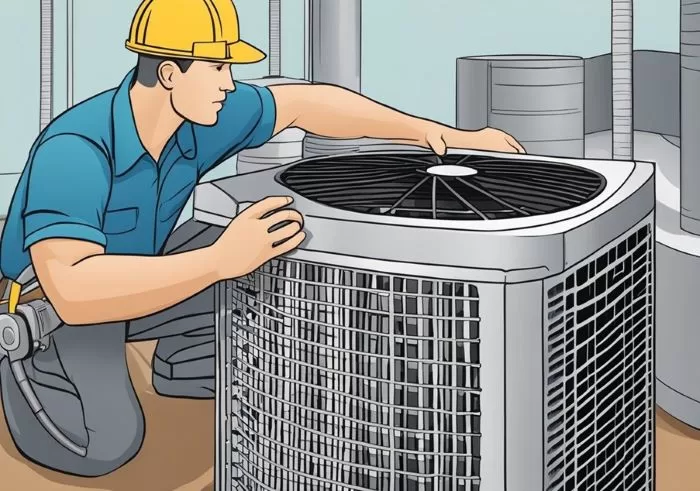Technology
Determining the Appropriate Timing for AC Filter Replacement: A Guide

Air conditioning filters play an essential role in maintaining indoor air quality. They are responsible for trapping dust, dirt, and other pollutants that can cause respiratory problems. Due to this, ac home air filter replacements are regularly important to ensure that the air quality in your home is not compromised. However, determining the appropriate timing for AC filter replacement can be challenging.
The frequency of AC filter replacement depends on factors such as filter type, home air quality, and the number of occupants and pets. While a general recommendation is every 30 to 90 days, individual circumstances may necessitate more frequent replacements.
A dirty filter not only compromises indoor air quality but also reduces the efficiency of the air conditioning system, potentially leading to higher energy bills and a shorter system lifespan. It is crucial to replace the AC filter at the appropriate time to ensure optimal system efficiency and maintain good indoor air quality.
Understanding AC Filters and Their Role
AC filters play a vital role in HVAC systems by trapping dust, pollen, smoke, and other airborne particles to maintain indoor air quality. Fiberglass filters, though affordable and easy to replace, are less effective against small particles. Pleated filters, while more efficient at capturing smaller particles, are costlier and require more frequent replacement.
The MERV rating, indicating a filter’s efficiency, is crucial to consider, but high ratings may impede airflow, reducing HVAC system efficiency. Manufacturers typically recommend replacing filters every 30 to 90 days based on factors like usage, occupants, and pets, emphasizing regular checks for dirt or clogs to ensure optimal performance.
When and How to Replace Your AC Filter
AC filter replacement is an essential part of maintaining healthy indoor air quality and an efficient air conditioning system. A dirty or clogged filter can cause restricted airflow, which can lead to poor cooling or heating performance, increased energy bills, and even damage to the system. In this section, we will discuss when and how to replace your AC filter to keep your system running smoothly.
When to Replace Your AC Filter
The frequency of AC filter replacement depends on several factors, including the type of filter, the size of the filter, the level of indoor air pollutants, and the usage of the system. As a general rule, it is recommended to replace your AC filter every 1 to 3 months, depending on the factors mentioned above.
A dirty filter can cause restricted airflow, which can lead to poor cooling or heating performance, increased energy bills, and even damage to the system. Homeowners should keep an eye out for signs of a dirty filter, such as reduced airflow, unusual noises, and poor indoor air quality.
How to Replace Your AC Filter
Replacing your AC filter is a straightforward process that can be done by any homeowner. Here are the steps to follow:
- Turn off the system: Before replacing the filter, turn off the system to prevent any damage or injury.
- Locate the filter: The filter is usually located in the return air duct, near the air handler or furnace.
- Remove the old filter: Carefully remove the old filter from the filter slot, making sure not to damage the filter or the system.
- Check the filter size: Check the size of the old filter to ensure you purchase the correct replacement filter.
- Install the new filter: Insert the new filter into the filter slot, following the airflow arrows printed on the filter.
- Turn on the system: Once the new filter is installed, turn on the system and check for proper airflow and performance.
In conclusion, AC filter replacement is an important part of AC maintenance that should not be overlooked. Homeowners should replace their AC filter every 1 to 3 months and follow the above steps to ensure proper performance and indoor air quality. By doing so, they can avoid costly repairs, improve energy efficiency, and reduce the risk of allergies and asthma.
Conclusion
Regularly replacing AC filters is crucial for maintaining a healthy indoor environment. The frequency varies based on factors like filter type, usage, and household conditions. Standard pleated filters should be replaced every three months, while high-efficiency filters can last up to six months. Monthly visual inspections are essential, prompting replacement when filters are visibly dirty.
Selecting the right size and type is vital for optimal performance and energy efficiency, with consultation from HVAC professionals or manufacturer guidelines recommended. This cost-effective practice improves indoor air quality, reduces energy consumption, and extends the HVAC system lifespan, ensuring a healthier and more comfortable living space for homeowners.






















































